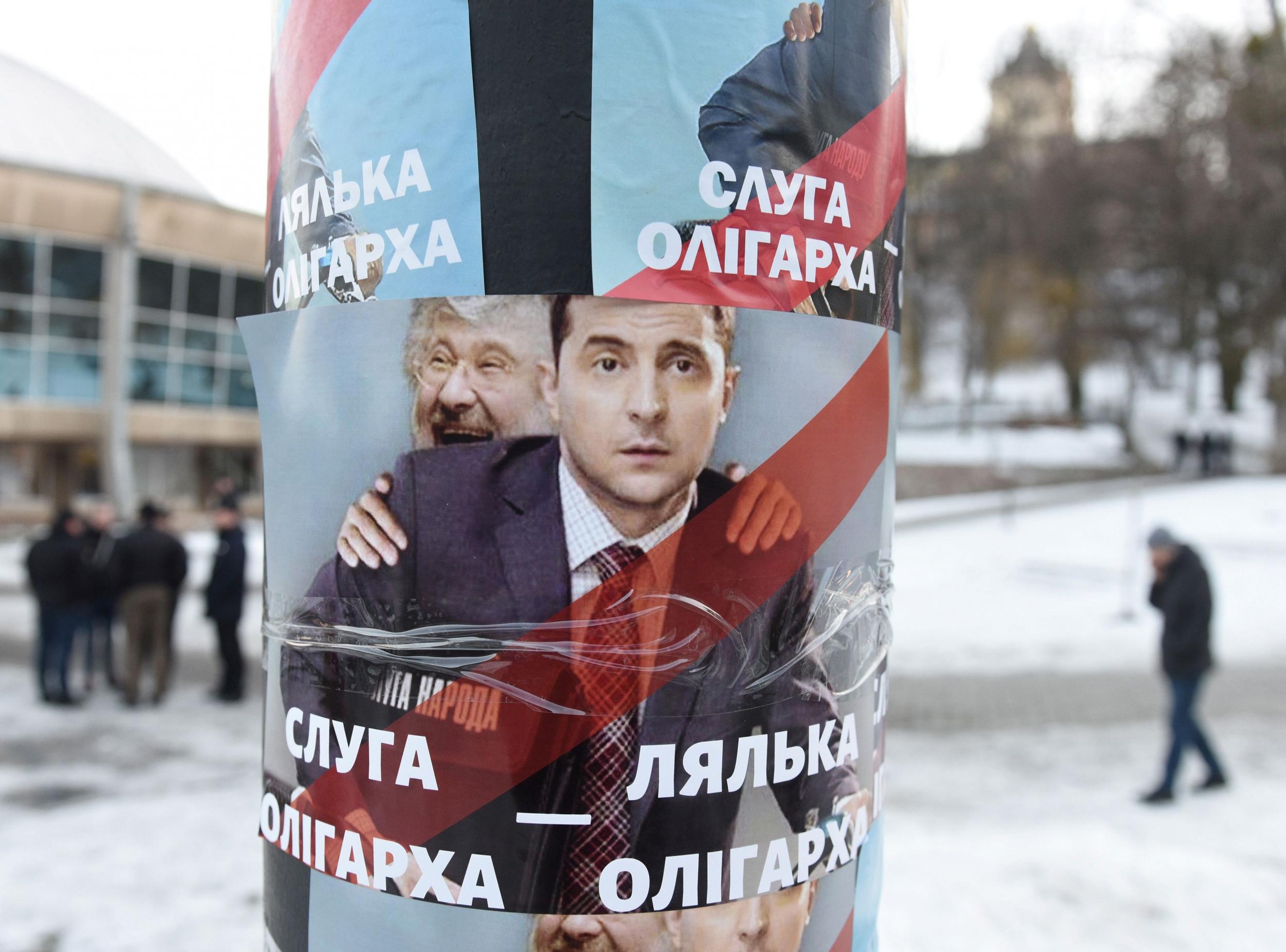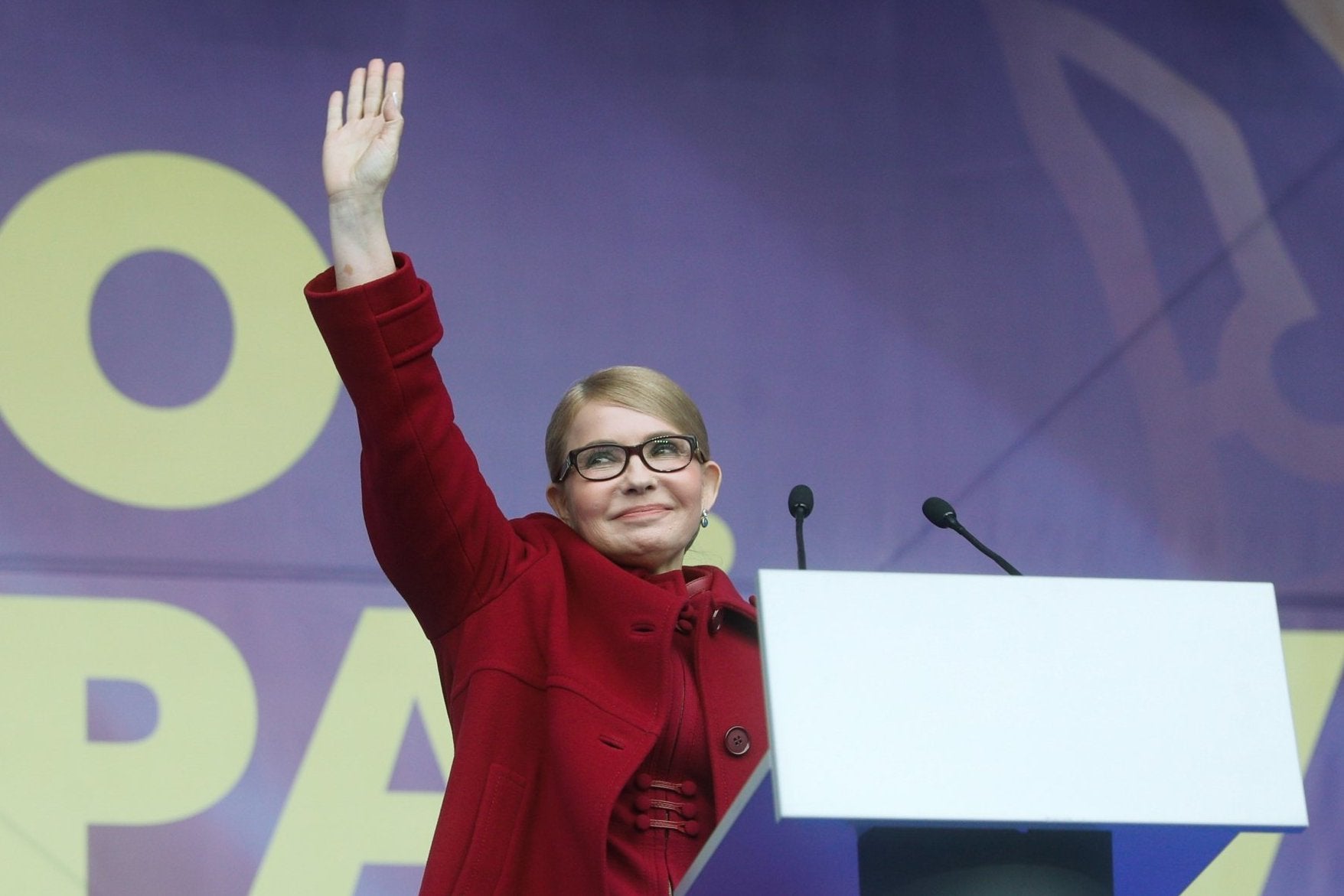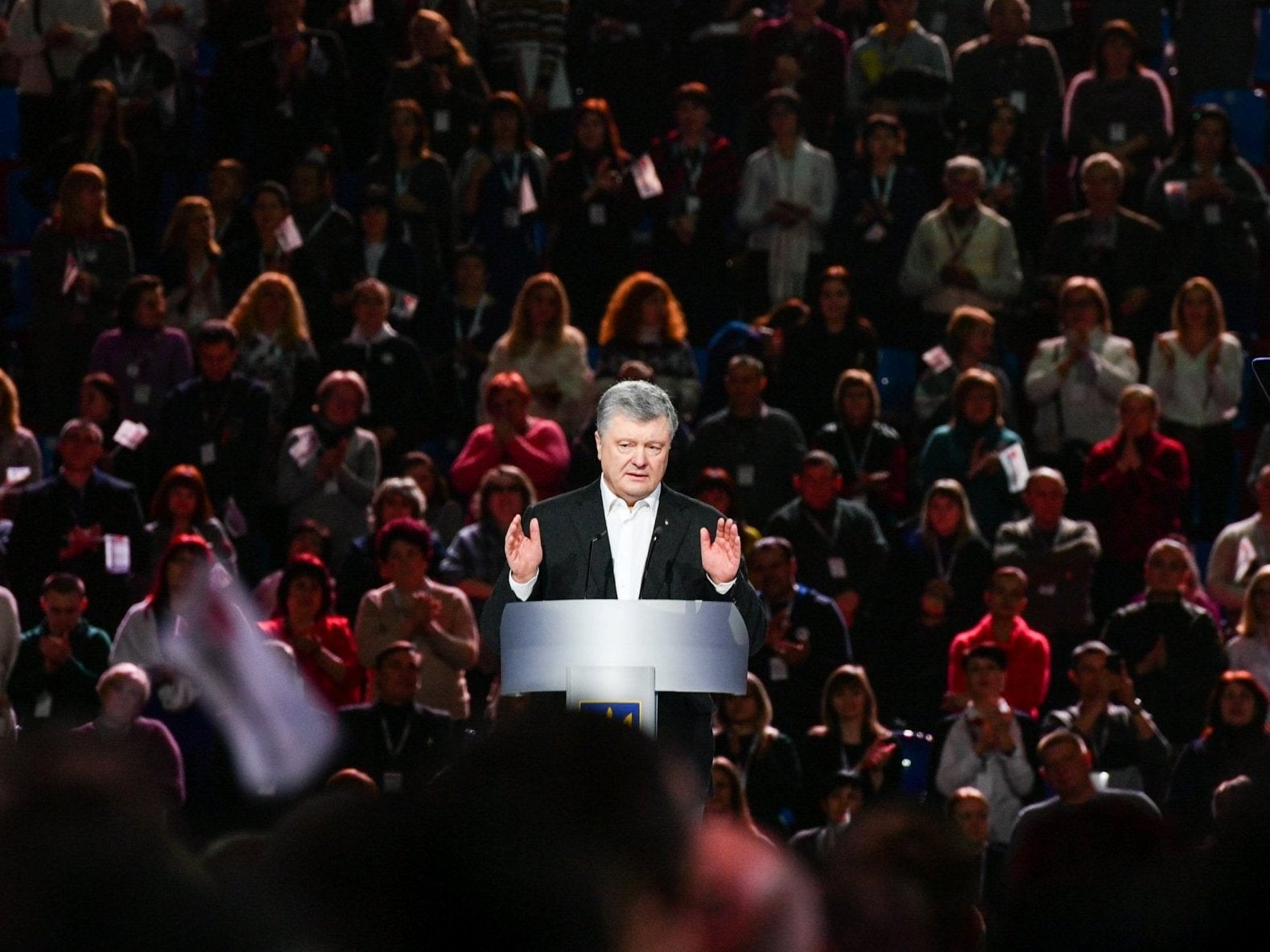From tragedy to farce: Ukraine heads to the polls
As Ukraine embarks on the most unpredictable presidential campaign in its history, a comedian looks best placed of a record 44 candidates to benefit from widespread apathy

Your support helps us to tell the story
From reproductive rights to climate change to Big Tech, The Independent is on the ground when the story is developing. Whether it's investigating the financials of Elon Musk's pro-Trump PAC or producing our latest documentary, 'The A Word', which shines a light on the American women fighting for reproductive rights, we know how important it is to parse out the facts from the messaging.
At such a critical moment in US history, we need reporters on the ground. Your donation allows us to keep sending journalists to speak to both sides of the story.
The Independent is trusted by Americans across the entire political spectrum. And unlike many other quality news outlets, we choose not to lock Americans out of our reporting and analysis with paywalls. We believe quality journalism should be available to everyone, paid for by those who can afford it.
Your support makes all the difference.Ukraine’s democracy might be lacking in many important regards – but on the participative principle, it excels in the extreme.
On Friday, Kiev’s Central Elections Commission kicked off the presidential campaign by announcing it had registered a record 44 candidates for the 31 March vote. This was over twice the number that took part in the last elections in 2014, and left many asking where the exactly the hopefuls had appeared from.
Some of the names were familiar, if not entirely typical presidential candidates.
Following the long-time favourites – ex-prime minister Yulia Tymoshenko and current president Petro Poroshenko – came the names of a comedian (Vladimir Zelensky), former spook (Valentyn Nalyvaichenko), a taxman once accused of embezzlement (Roman Nasirov), and a blogger currently under investigation in connection with a sex scandal (Volodymyr Petrov). As Petrov boasted on Facebook, he will make history as the first candidate to run a campaign while under house arrest.
But about a dozen of the names had appeared out of nowhere and seemed to be tasked with fake campaigns in favour of other candidates.
Yulia Tymoshenko was particularly irked at the inclusion of two names on the list – Yuri Tymoshenko and Yulia Litvinenko – which will likely confuse the more elderly sections of her electorate. Tymoshenko immediately accused President Poroshenko of fraud and demanded the candidates be removed.
With two months to go before election day, polls fail to show a clear leader. No candidate has passed 20 per cent of decided voters, let alone the 50 per cent required to avoid a second round run-off.

But the one man who has consistently grown in popularity is the joker of the pack, Vladimir Zelensky.
A number of polls now suggest the comedian has overtaken Tymoshenko to occupy pole position. Depending on the poll, 14-16 per cent of the active electorate say they will now vote for him. That rating has shot up by 5 per cent in the last month, with much of the increase coming at the expense of rock-star Vladislav Vakarchuk, who withdrew from the contest without ever declaring.
Zelensky’s clever campaign is based on engaging disaffected voters and looks to take advantage of the kinds of swings that brought Donald Trump and Brexit home.
His major advantage is that people already know him. His “Kvartal 95” comedy collective are a household name in Ukraine. He’s also well remembered for a role in a long-running serial called Servants of the People, where, appropriately enough, he plays a secondary school teacher whose battle against government corruption propels him to run for the presidency.
And the TV image of an outsider, breaking into politics, is fuelling his popularity.
“This myth that he can come from the people to become president is very strong,” says the independent expert Vladimir Fesenko. “It’s completely illusionary, and doesn’t prepare him for the government, but is a problem for the old guard standing against him.”

Despite his lack of political experience, Mr Zelensky has shown solid political intuition, focusing on positive themes of “dreams” and “national renewal”. This plays in sharp contrast with the aggressive patriotic, anti-Tymoshenko positions of Poroshenko, and equally aggressive populist, anti-Poroshenko positions of Tymoshenko.
According to veteran poll watcher Volodymyr Paniotto, director of the International Institute of Sociology in Kiev, only three candidates – Zelensky, Tymoshenko and Poroshenko – stand a chance of ending up in a second-round runoff. At this stage of the campaign, there is little to distinguish between the levels of their support, he adds.
But much of Zelensky’s potential electorate is untested. On the one hand, he is best placed to benefit from a wave of distrust in politics and politicians. But his young following is usually the least likely to vote. He is also the least scrutinised of the three, and may well run into problems as negative campaigning steps up in the weeks to come.
One known weakness is his closeness to the controversial oligarch Ihor Kolomoisky, who is a business partner. Already, opponents are stepping up attacks on this front.
Many anticipate the elections will be both among the most competitive and contested in recent memory.
Already allegations of vote rigging and criminality abound. This week, Yulia Tymoshenko was among several leading candidates to sign a memorandum openly criticising the tactics of President Poroshenko’s team, who, they alleged, were preparing “mass falsifications” and electoral manipulation.
The disgraced former president Viktor Yanukovych also made a surprise intervention from exile in Moscow, claiming Petro Poroshenko was “unable” to win honestly.
While the current president is not out of the race, and has improved his poll standing significantly in recent weeks, he does have an uphill battle on his hands. Even if he manages to break through to the second round, he has to improve on poor net voting intentions to win outright.
On the basis of current polling, his anti-rating, which will likely transfer to an opponent in a second round, is the highest of all the leading candidates. Nearly 50 per cent say they will “never” vote for him. Tymoshenko fares only slightly better on this marker – at around 30 per cent.
And it is this wariness with the old guard is that plays most in Zelensky’s favour, says expert Fesenko, who suggests the comedian’s chances of taking the presidency may now be as high as 25 per cent.
“If Zelensky can get through to the second round, he has every chance of winning,” he says.
"The presidential office is ready for the joke candidate – even if he isn’t quite ready for the presidential office”.
Join our commenting forum
Join thought-provoking conversations, follow other Independent readers and see their replies
Comments